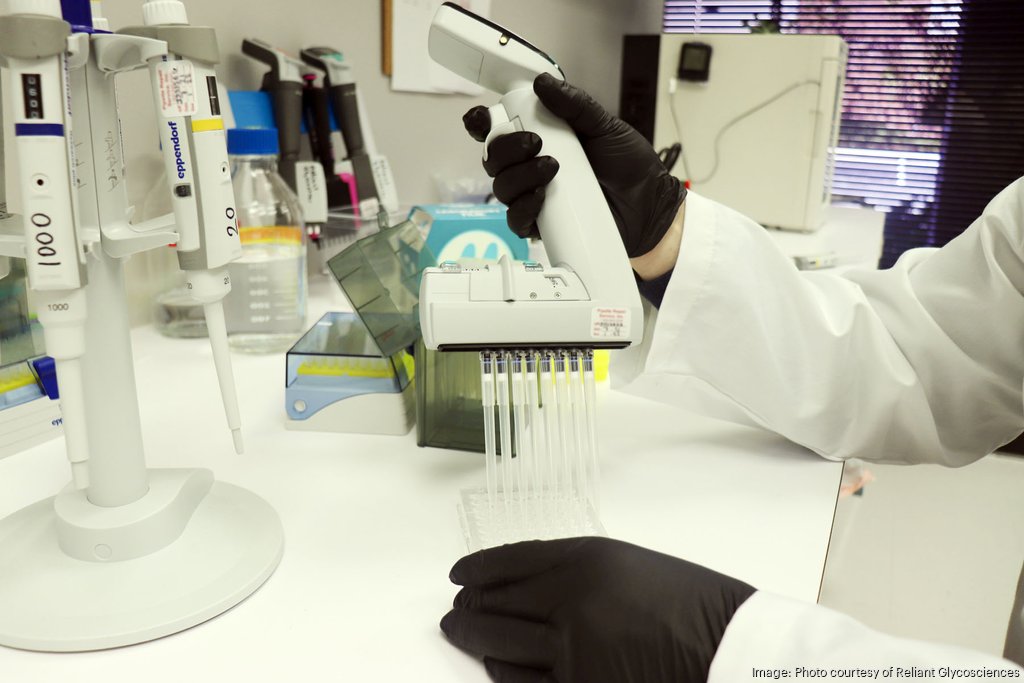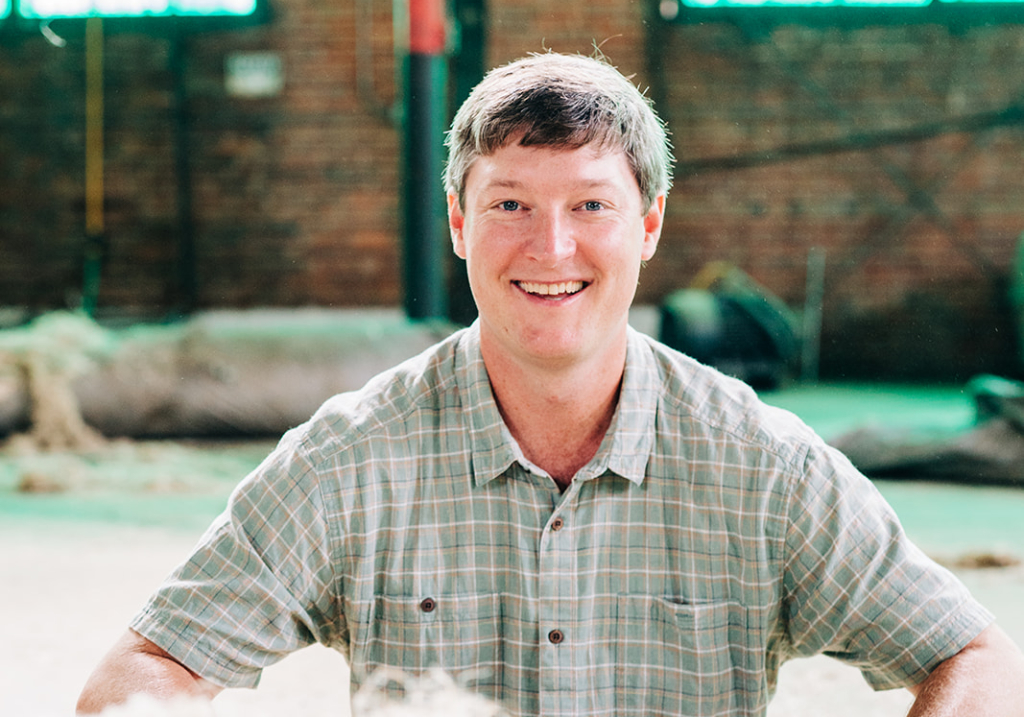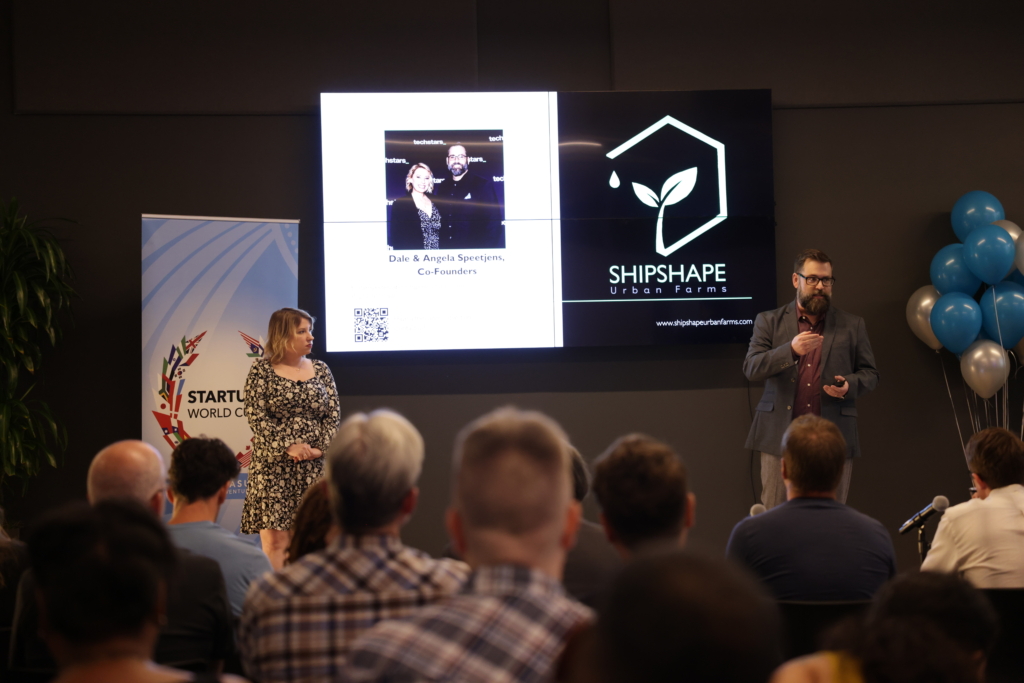April 22, 2024 · Capital & Resources, In The News
From shrimp shell polymers to new cures for cardiovascular disease: Alabama’s world-changing innovation didn’t stop after Carver’s peanuts

When you think of Alabama technology, you may conjure sepia-toned images of George Washington Carver’s peanut inventions or grainy footage of the first moon landing, achieved with the Saturn V rocket built on Alabama soil. What you may not realize, is how Alabamians today continue to generate world-changing technologies.
In 2001, Gabriela Gurau left Romania to move to Tuscaloosa, Alabama, to pursue a Ph.D. in chemistry. Now, as the CEO and co-owner of 525 Solutions, Gurau said she’s happy to call Tuscaloosa home, in part, because of the work she’s doing here, “Using biomass waste to make materials that eventually can replace plastics.”
In 2022, 525 Solutions was a recipient of funding through the Innovate Alabama Supplemental Grant Program. The initiative — facilitated by Innovate Alabama, a statewide public-private partnership focused on entrepreneurship, innovation and tech — builds on Federal Small Business Innovation Research (SBIR) and Small Business Technology Transfer (STTR) grants by funding local businesses that have active federal Phase I or II grant programs.
The program provides additional resources for small businesses whose proven business models and technologies are helping accelerate innovation in the state.
To date, Innovate Alabama has awarded nearly $10 million through supplemental grants to small businesses across the state. One biotech company even credits Innovate Alabama for getting them to Phase II, thus winning an additional million-dollar grant and launching their business to the next level.
525 Solutions used the funds for market research and personnel. Gurau didn’t necessarily see herself staying in Alabama after school. “I got my Ph.D. and started working with professor Robin Rogers, Ph.D., and founder of 525, as a postdoc. And I really liked the idea of becoming an entrepreneur. I got involved in the company, and I’m still here.”
CEO of Innovate Alabama, Cynthia Crutchfield, said the supplemental grant program is all about ensuring local talent remains in the state and welcoming and investing in transplants from outside the state who take a chance on Alabama.
If you take the leap to put down roots here, Innovate Alabama will help you grow.
To Crutchfield, the supplemental funding is a no-brainer when it comes to retaining and attracting talent. Crutchfield said ecosystem builders and the state’s highest-ranking elected officials are collaborating to help entrepreneurs thrive in Alabama.
“I’m excited about the potential in that I do think that it creates fair opportunity for everyone, no matter if you’re rural, urban, high tech, no tech, low tech. I feel like it’s creating opportunity for everyone,” Crutchfield said. In her role as CEO, Crutchfield is working to ensure the state has an equitable business environment for people regardless of class, race, gender or hometown.
“I also love the idea that we are giving our students the opportunity to remain in the state,” said Crutchfield, whose son is currently studying computer science at her alma mater, Alabama A&M, one of the state’s 14 HBCUs. She’s proud he’ll enter a workforce where he won’t have to leave the state if he doesn’t want to.
Another winner, a nanotechnology company in Auburn, credits the grant for making its work possible — and connecting their team to even bigger funders. After Nanoxort was awarded the supplemental grant from Innovate Alabama, they won phase II funding from the federal government, which “enabled us to get $1 million,” said Dr. Allan David, Nanoxort co-founder.
“Without those funds, I don’t think it would’ve been possible,” said Tareq Anani, CEO and co-founder of Nanoxort.
Anani and his team had developed the idea for their company — engineering an iron-based dye to be used in MRIs as a potentially healthier option to the gadolinium contrast that’s in standard use today — while he was doing his Ph.D. at Auburn University. With the grant funding, Anani, who had moved to New York for a postdoc, was able to return to Auburn and expand the Nanoxort team.
Tareq said it was through talking to radiologists about their challenges in diagnostics and talking to people who had to get MRIs that his team had the idea for an iron-based contrast. People getting MRIs, he said, are often worried about the added risk of gadolinium. These tests are happening in high-stress moments, when people are already afraid about their illness or injury, he said. For parents, especially, MRIs can be nerve-wracking experiences as children undergo testing. For radiologists, Nanoxort’s iron-based dye is easier to work with than the industry standard.
Innovation has always been in Alabama’s DNA, and now, thanks to big thinkers like Tareq and his team, Alabama innovations are shaping the future of medicine.
The Nanoxort team is excited by the research, which could potentially change diagnostics in a number of fields. If their theory is proven true in testing, David said, “We’re producing a safer agent, able to remain in the body for a longer period of time and get better diagnostic images.”
As for being one of the few biomedical startups in Alabama, Nanoxort is eager to pave the way for others, creating a culture of collaboration and not competition.
“In order to grow a company like this, you need venture capital and access to funds,” David added. “We are hoping to grow that ecosystem here.”
To attract more people to the state, the supplemental grant program opened for businesses outside of Alabama, said Miller Girvin, executive vice president of innovation and entrepreneurship at the Economic Development Partnership of Alabama (EDPA). With Innovate Alabama, Girvin works to facilitate the supplemental grant and on a number of talent-retention and business growth projects.
“If they receive funding, [companies] would be required to move to Alabama with their headquarters within 12 months, have 50% of their executive team living in Alabama, and 50% of their employees living in Alabama,” Girvin explained. Last year, one of the winners was Colorado-based J-TECH LLC, a chemical-free septic tank treatment company, whose research operation is in Tuscaloosa.
With Alabama’s high quality of life at a low cost of living, making the move can be an easy sell.
Alabama is a remarkable frontier of innovation — discover how you can grow roots here. Bring your idea. Your business. Your product. In Alabama, you’ll get the support of a community committed to seeing you succeed. Whatever it is, we’re in. To learn more about Innovate Alabama and the robust resources available for founders, researchers and students in Alabama, visit InnovateAlabama.org. If you’re interested in SBIR/STTR supplemental grants, click here to move your idea from concept to commercialization with additional funding.
Get the Download
The latest stories of inspiration and innovation happening all around our state, right to your inbox.



